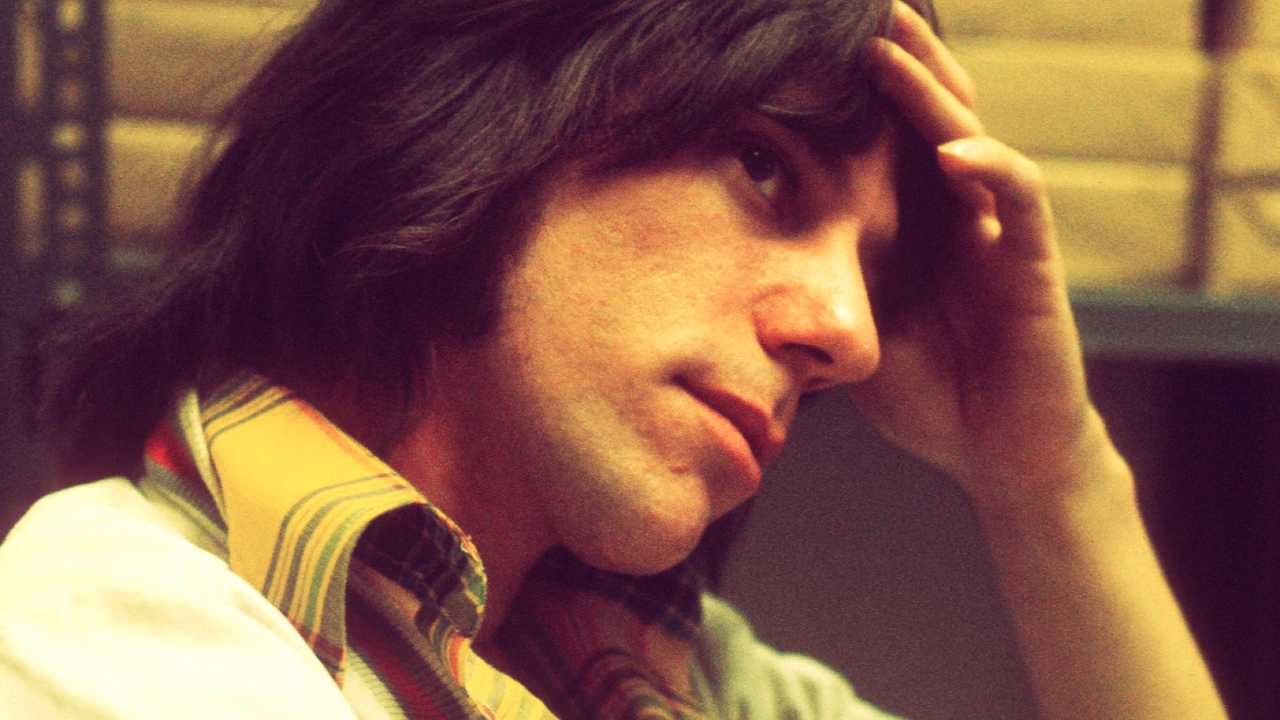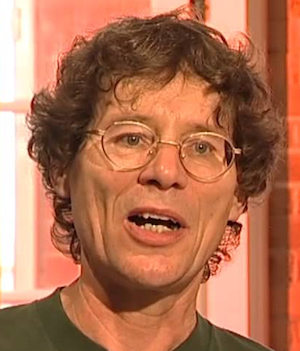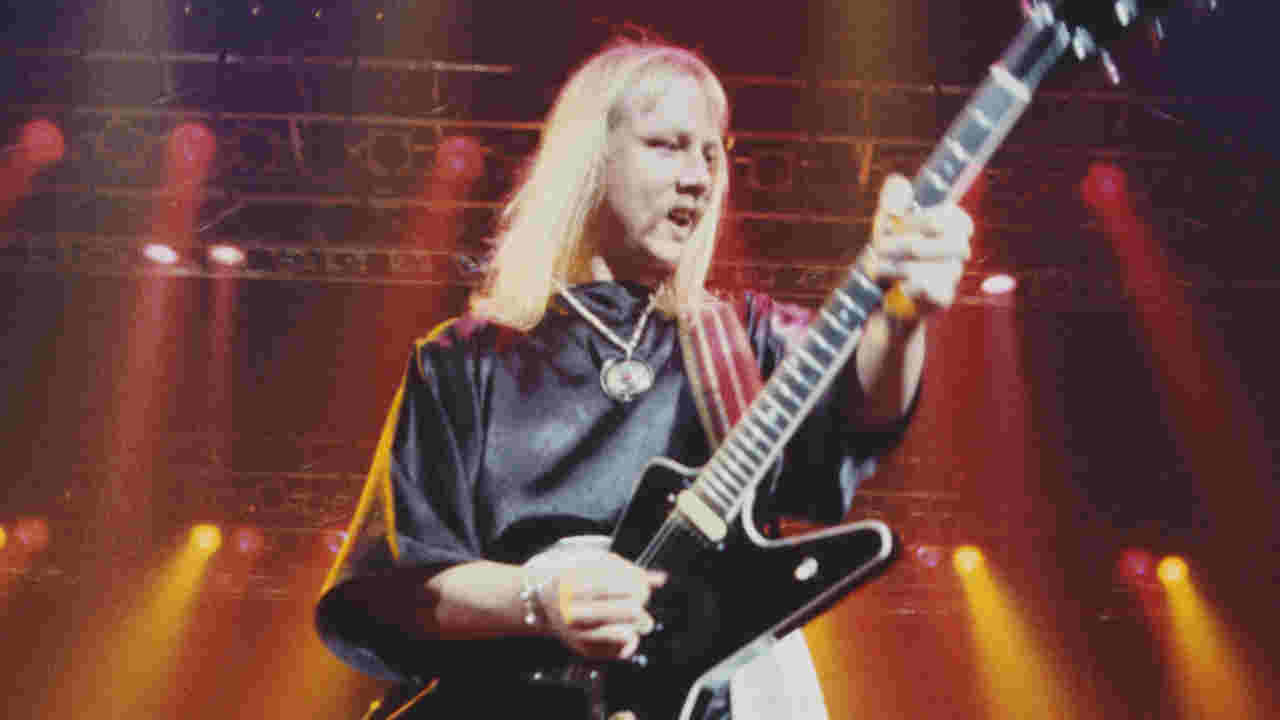Jeff Beck: My Life In 11 Songs
In 2008, Jeff Beck looked back on his stellar career, and talked about his solo work and his music with The Yardbirds, Robert Plant, Tina Turner, Stevie Wonder and more

The most mercurial guitarist of his generation, Jeff Beck never conformed to the conventional image of a guitar hero, repeatedly leaving or breaking up bands before their commercial potential could be realised.
He restlessly changed style from one album to the next, refusing to be tied down musically. And his live performances were intermittent – although seldom short of breathtaking. As Black Sabbath's Tony Iommi said, "he was an outstanding, iconic, genius guitar player - there will never be another Jeff Beck. His playing was very special and distinctively brilliant."
Back in late 2008, the man himself spoke to Classic Rock and looked back of the key songs in a career that takes in pioneering blues rock, drop-dead cool funk, lightning-speed jazz fusion and everything in between. Take it away, Jeff.

The Yardbirds – Train Kept A Rollin’ (single, 1965)
“We did that with Sam Phillips at Sun Studios in Memphis on our first tour of America. Giorgio Gomelsky, who was in charge of the band at that time, phoned him up and Sam said: ‘It’s Sunday. We’re closed’. Giorgio told him he was missing a great opportunity to record a happening band, and eventually persuaded him. So we went down and recorded a couple of tracks.
“To be honest, our version of Train Kept A Rollin’ was pretty awful but it was different. I’ve studied the Johnny Burnette Trio version since and it’s still the most amazing track ever. It’s also kept Aerosmith going for quite a while. In fact, it backfired for me when I put it back in the set, and people would come up and say: ‘I loved that Aerosmith track you played’.”
Jeff Beck - Beck’s Bolero (B-side, 1967)
“That was recorded with John Paul Jones, Jimmy Page, Nicky Hopkins and Keith Moon. And that was the band we hoped to form out of that session. Keith had agreed to play drums for one day, and when he turned up we were hoping that he might be interested in a permanent position. He was not happy with his current band; something to do with the vocalist, I think.
“I don’t know if it would have worked or not but it sounded so great in the studio. I couldn’t believe it when we went back and listened to it in the control room. We were going: ‘This is amazing. What can we do with it?’ And the next thing we know Keith is back with The Who and the whole thing never got off the ground. But all we needed was a singer. Unfortunately there was no Peter Grant [Led Zeppelin manager] around at the time to grab us and do something with us.”
Sign up below to get the latest from Classic Rock, plus exclusive special offers, direct to your inbox!
Jeff Beck Group – You Shook Me (from Truth, 1968)
“When Peter Grant played me the first Led Zeppelin album I thought he was having a laugh. Never mind. It all worked out great for them.
“In fact Peter Grant managed the Jeff Beck Group at the beginning and saved us from almost certain death by taking us to America. All we had been doing was going up and down the M1 playing small venues. We were never going to get anywhere unless we went to America. Peter worked in the same office as Mickie Most, who used Jimmy Page on a lot of sessions. And as soon as Jimmy showed interest in forming a band and I was being a nuisance, Peter did the right thing and shut me down and opened up with Zeppelin.
“Which is the best thing he could have done really. Although if he’d concentrated harder at keeping the peace among my band we would have been a lot better off.”
Stevie Wonder - Superstition (from Talking Book, 1972)
“Epic Records were bleeding for a record from me, ’cos I was only making about one album every 10 years. So they said: ‘If we can get you on Stevie’s record and he writes a song for you, will you make a record for us?’ And I said: ‘What time’s the plane?’ I’d heard [Wonder’s] Music Of My Mind and I was just in awe.
“One day, during a break, I was fooling around playing a drum lick, and Stevie walked in and he thought I was the drummer. He said: ‘Don’t stop,’ and walked over to the clavinet and started playing the riff. Which was the beginning of Superstition. We played for about two minutes and then we started working on it properly.
“That was supposed to be my song. But when Stevie took a demo of it back to Motown, [Motown boss] Berry Gordy said: ‘This is yours.’ And that was the end of that.”
Jeff Beck – Scatterbrain (Blow By Blow, 1975)
“When I got nervous in the dressing room I used to practise fast scales. And [keyboard player] Max Middleton started writing chords around my practice scales. Anything with a quirky melody or strong chords is always going to survive as a live number because you can keep updating it with more chords or drum fills.”
“When I got nervous in the dressing room I used to practise fast scales. And [keyboard player] Max Middleton started writing chords around my practice scales. Anything with a quirky melody or strong chords is always going to survive as a live number because you can keep updating it with more chords or drum fills.”
Jeff Beck – Cause We've Ended As Lovers (from Blow By Blow, 1975)
“When I heard this song, which Stevie Wonder had written for his girlfriend Syreeta, I thought: ‘This is a guitar piece’. And then Max Middleton came up with a keyboard part for another tune. And it came together that way. It’s a blues track but it’s got a very beautiful motif. Then it’s got the strong, macho blues melody in the middle and it comes back to the wispy, feminine melody at the end.”
Jeff Beck – Led Boots (from Wired, 1975)
"I wanted to take as much inspiration out of the Mahavishnu Orchestra without anybody recognising it. The only tell-tale sign was [Mahavishnu keyboard player] Jan Hammer. I wanted a huge amount of his input. His playing is so fast but it’s very deceptive. It’s like playing with a demon. And I love the way he understands compression and funk. He’s got all the elements that I love about rock’n’roll. I thought it was a bit too compressed, but when I listen to it now I can hear that he knew what I should be doing better than I did; that kind of white rock thing.”
The Honeydrippers – Good Rockin' At Midnight (from The Honeydrippers Vol. One, 1984)
“The phone rang in my apartment in New York. It was [Atlanic Records boss] Ahmet Ertegun, and he said: ‘What are you doing right now?’ I said: ‘Fuck all. It’s Sunday and it’s raining.’ He said: ‘Well, you’d better get over to Atlantic studios. We’ve got Robert Plant here.’ So I went over there, and an hour later we were playing.
“I think Robert was trying to get into that Sun Studio vibe. He loves all that stuff and he loves real performance recording. You just hope you get the right sound engineer to do justice to it. Someone like Tom Dowd, who could catch it. You do two or three takes and choose the best one. Done. You don’t hang around for three weeks trying to get the cymbals to sound right.”
Jeff Beck - People Get Ready (from Flash, 1985)
“I’d done it as an instrumental version, and Rod Stewart heard it and he loved it. He was on the phone to one of his blondes when I played the demo, and he suddenly said: ‘What the fucking hell’s that? Let’s record it.’ So we booked a studio.
“And I remember it was a magic session. People in other parts of the studio stopped what they were doing and came to listen, so there was quite an audience in the control room. It was one of those great moments. And I think that was one of the best performances I’ve ever heard Rod do.”
Tina Turner - Steel Claw (from Private Dancer, 1984)
“I had this horrible guitar, that was only good for the high-end stuff, but Tina loved it. I was doing some grungy stuff with it and she said: ‘I love those high notes, just go for it.’ And, like me, she’d do things in a couple of takes — once to get the balance and then just go for it. She stayed around while I was putting down a solo, but it wasn’t working and I said: ‘Look, you’re better off going to dinner.’ And as soon she’d gone I just rattled one off. I don’t really like people staring at me while I’m in the studio. That People Get Ready session [with Rod] was an exception. It was just a chance to show off.”
Jeff Beck - Nadia (from You Had It Coming, 2001)
“ I learnt that by listening to Nitin Sawney’s original version. It was a challenge and a half to try and get all those Indian scales and stuff, but once I got the melody it was plain sailing. We were building songs out of a click track, just a grain of sand. At one point I copied a blackbird song. I used to hear one in an apple tree outside my window when I was a child, and that melody was so whistle-able. So we bought a CD of bird songs and slowed the blackbird song right down so that I could pick out the melody. Then I transposed it onto a bottleneck.”
This article originally appeared in Classic Rock 127, published in January 2009
Hugh Fielder has been writing about music for 50 years. Actually 61 if you include the essay he wrote about the Rolling Stones in exchange for taking time off school to see them at the Ipswich Gaumont in 1964. He was news editor of Sounds magazine from 1975 to 1992 and editor of Tower Records Top magazine from 1992 to 2001. Since then he has been freelance. He has interviewed the great, the good and the not so good and written books about some of them. His favourite possession is a piece of columnar basalt he brought back from Iceland.

